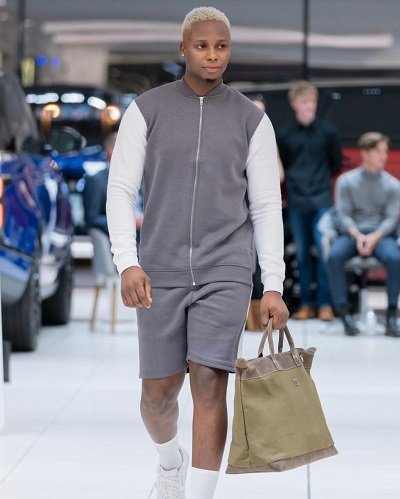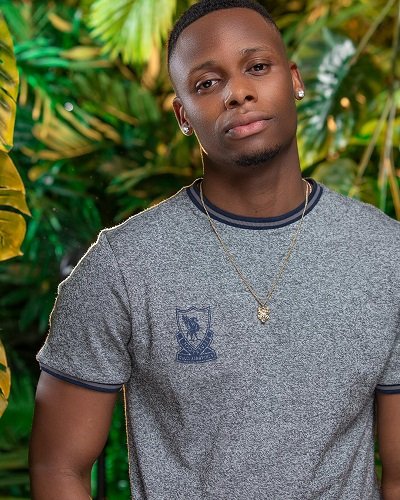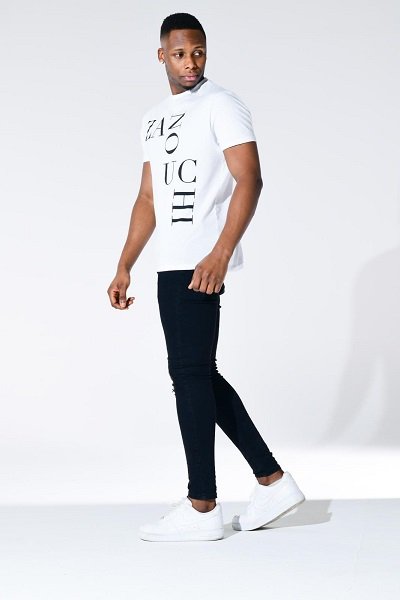Profile
Evans Ofori: Model extraordinaire, inspiring sense of fashion
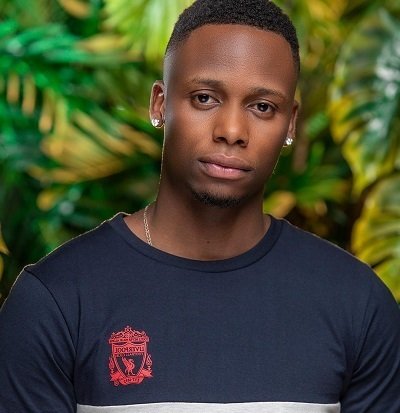
Unlike many that pursue a career in Fashion modelling for the clout, fame and the celebrity status it provides, UK-based Ghanaian model, Evans Ofori, has a different motive — the passion to inspire people’s sense of style.
The 25-year-old has over the years been intrigued by the massive influence of fashion modelling in people’s fashion choices and personal style.
For this reason, he has decided to be a part of people’s journey as they pursue their fashion goals by ambling on the runways and posing for photographs to inform and showcase the latest clothing styles to aid their choices.
”Fashion is everything. We see nice things and we want it. Fashion is one of the most important aspects of our lives. You dress good; you feel good. You get compliments.

●Evans on the runaway 
●Evans Ofori 
●Evans Ofori
“You attract others and unconsciously you influence someone without knowing it. How many times have people asked others ‘where did you get that from’?” he intimated.
The opportunity to meet people from different backgrounds with different experiences and cultures has also been a great incentive for Evan’s love affair in modelling.
He talks fondly about the networking opportunities the profession has introduced him to; the everlasting bond that he has encountered and working with people he never imagined he would ever meet.
Career
Despite being in second year as a professional fashion model, Evans has made significant headways and is billed for great exploits in the industry.
He started off by doing extras for shows in the United Kingdom (UK) including the ‘only way is Essex’, Hollyoaks and popular Chinese movie installations, IPman 4 on Netflix. Evans again starred on ITV’s dating show, ‘Dress to lmpress.’
These works boosted his profile going on to work for notable brands including Liverpool Football Club (LFC retail), Zanouchi, Envisage, KIR while featuring also on the runway for the Bepo and Osprey clothing brands at the Cheshire Fashion week.
A graduate from the University of North Lanchashire in Preston, Evans owns a Sports therapy business also.
For him, his confidence, affectionate and savviness with communication and networking skills have been the major pillars of his career.
Challenges
According to Evans, being a Fashion Model is physically demanding as it always “requires you to be in good physical shape.”
“There’s also the challenge of learning how to adapt since brands may need you to do a specific job that suits their preference,” he noted.
Maintaining an unblemished reputation when thrust into the spotlight, according to him, is crucial for progress, since brands and clients do not want unreliable or controversial models.
He again admits that favouritism is rife in the profession and, therefore, models need strong networking skills to advance their careers and continuously prove to agents that they deserve certain jobs even if they have rightfully earned their place.
Notwithstanding the inherent challenges, he says the job provides an adventure, thrill and fun that fuels his love and pride to stick to it.
Future
Having worked with leading global and UK clothing brands, Evans says he is prepared to venture into the Ghanaian and African markets to make an enviable mark.
As a Ghanaian and an African, he believes working with clothing brands on the African continent will be an expansion of his work and a dream come true. It will also afford him the opportunity to introduce his works across the continent.
“Being a Ghanaian and African, I’ve also dreamt about influencing fashion across the continent because I believe as Africans, we have an authentic and unique style which we should be harnessing for global impact,” he states.
By Nana Bentsi Oduro
Profile
Salamatu Ahmed, Ghana’s only female Hausa sports broadcaster
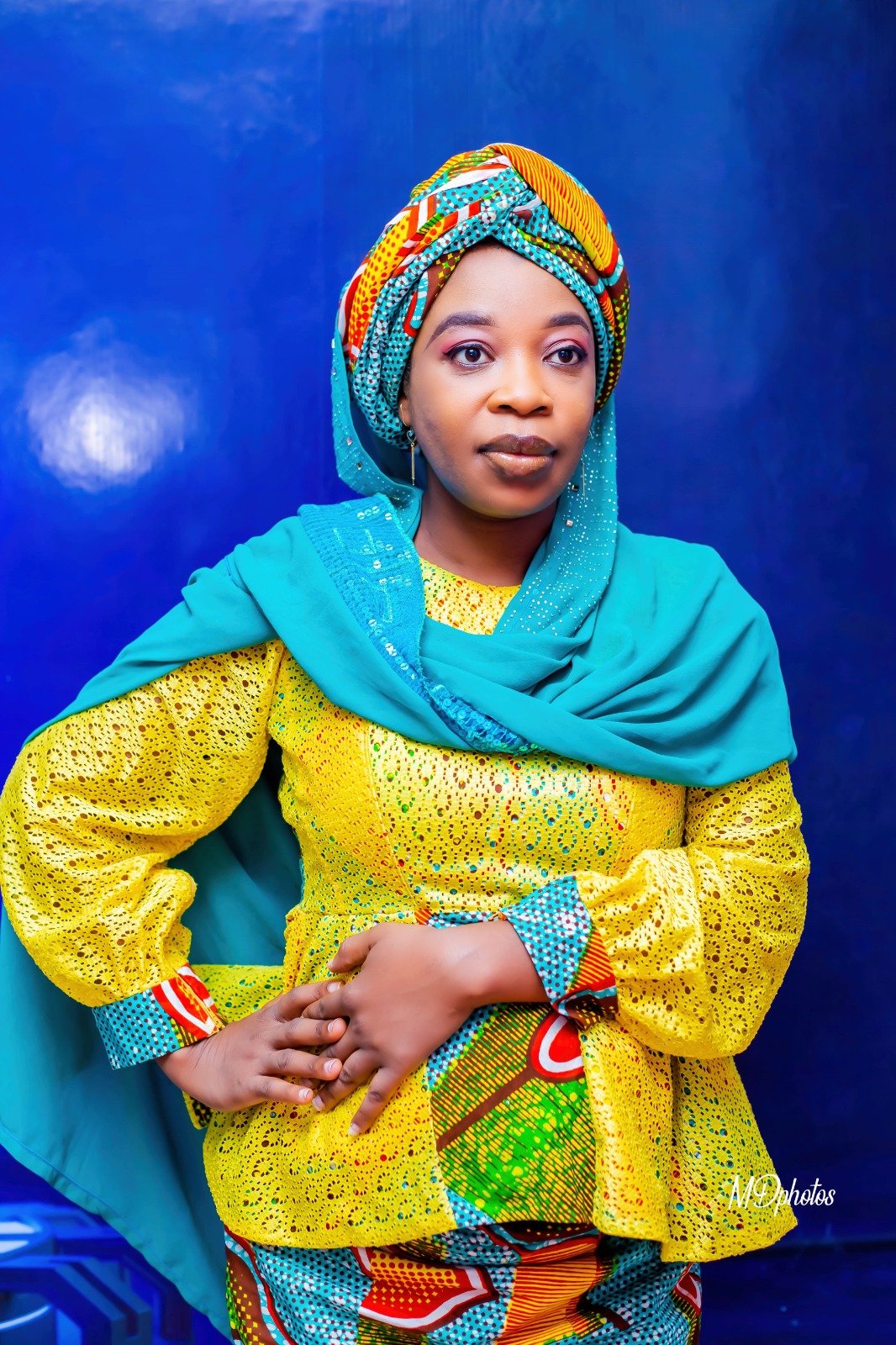
In a field long dominated by men, she has turned her microphone into a tool for change, amplifying women’s voices, promoting gender equality, and challenging deep-rooted stereotypes in sports journalism.
In Ghana’s media landscape, especially in the arena of sports, Salamatu Ahmed stands out. Not just as the host of Iqra Radio’s popular morning show, but as the country’s only female Hausa sports broadcaster.
From humble beginnings in Lagos to an influential voice behind the microphone in Accra, her journey is one of boldness, resilience, and purpose.
“I grew up in a close-knit neighbourhood in Lagos where everyone looked out for each other,” she recalled in an interview with The Spectator on Monday. “There was no discrimination. I could enter any house, share a meal or even sleep over without raising eyebrows. That spirit of unity shaped my values.”
She said, her love for broadcasting was sparked by her father, who was an athlete and devoted news watcher. Her father loved sports and news and recounted how she used to sit with him, watching the newscasters and wondering how they memorised so much.
“I later found out they used a teleprompter-what a relief!” she said with a laughter.
Salamatu’s passion for football heightened during the France ‘98 World Cup. “I watched almost all the matches. That tournament made me fall completely in love with the game,” she said.
But it was not until years later that broadcasting became a real career path-and quite unexpectedly.
She recounted how a friend of hers was managing Hijra TV asked her if she knew anyone who could do Hausa sports for the TV station.
She grabbed the opportunity as she was not working at the time, saying “so I offered myself,” she explained. “That was how it all started.” From Hijra TV, she moved on to Baina TV and eventually found her home at Iqra Radio.
Though her original dream was to become an English-language sports anchor, Hausa unexpectedly became her breakthrough. “People always ask how I manage to do it in Hausa, and the fascinating part is I am a woman doing it. That’s what truly sets it apart.”
But the journey has not been without hurdles. As a woman in sports media, she has had to fight for access and respect.
“It is always difficult getting interviews. Some male counterparts do not like sharing contacts or information,” she said.
Salamatu recounted how early on, men would ask for sexual favours in exchange for job opportunities. She said it got so discouraging that she left job-hunting for a while and ventured into business instead.
Now firmly established in her field, she uses her platform not only to cover sports, but to push for systemic change. As a panelist on various forums and a vocal supporter of women’s football, Salamatu has advocated for increased investment, better pay, and more opportunities for female athletes.
“Why should male footballers be paid more for doing the same job?” she quizzed during the conversation. “Female athletes often do not get bonuses or incentives that make life easier for them. People label us feminists for speaking out-but isn’t it just fairness?”
She also spoke passionately about how female athletes face scrutiny that goes beyond performance. “Look at Barbara Banda of Zambia; she faced criticism for being too ‘masculine.’ Imane Khelif, the Algerian boxer, faced similar discrimination. It’s disheartening. People forget these women are excelling at their craft.”

In 2024, Salamatu’s influence reached the global stage when she was selected to represent Ghana at the Fourth Eurasian Women’s Forum in St. Petersburg, Russia. There, she joined other global leaders in conversations about empowering women in media, politics, and business.
“That experience showed me that our voices matter beyond our borders,” she said. “We are not just fighting for recognition here; we are part of a global movement.”
Away from the microphone, Salamatu is known for her bubbly personality. “I am a fun-loving person-anything fun, count me in! I love cooking, watching movies, and reading.”
She credits her background-a Muslim from a Zango family for instilling in her resilience and discipline.
After schooling in Lagos, she moved to Ghana and earned a diploma in Communication Studies from the African University College of Communications (AUCC), now African University of Communication and Business (AUCB).
Her greatest pride is being the only female voice doing Hausa sports broadcasting in Ghana.
“Until someone else comes along, I will keep holding this fort,” she said with a smile. “It is my biggest achievement so far.”
For young girls looking up to her, she urged them never to be intimidated but rather carve a niche for themselves and be unique.
“You do not have to sound like or look like everyone else. Just be you and be excellent,” she added.
By Esinam Jemima Kuatsinu
Profile
Fiator Mordeku III of Awudome Tsito — The bridge builder in chieftaincy and architecture

Fiator Mordeku III of Tsito, known in private life as Kafui Kwame Amegbe, is a unique blend of tradition, service, and modern professionalism.
As a chief, an architect, and a community development advocate, he wears his many hats with humility, driven by a powerful dual motivation: a deep desire to serve and preserve his family’s legacy, and to play an active role in creating positive change in society.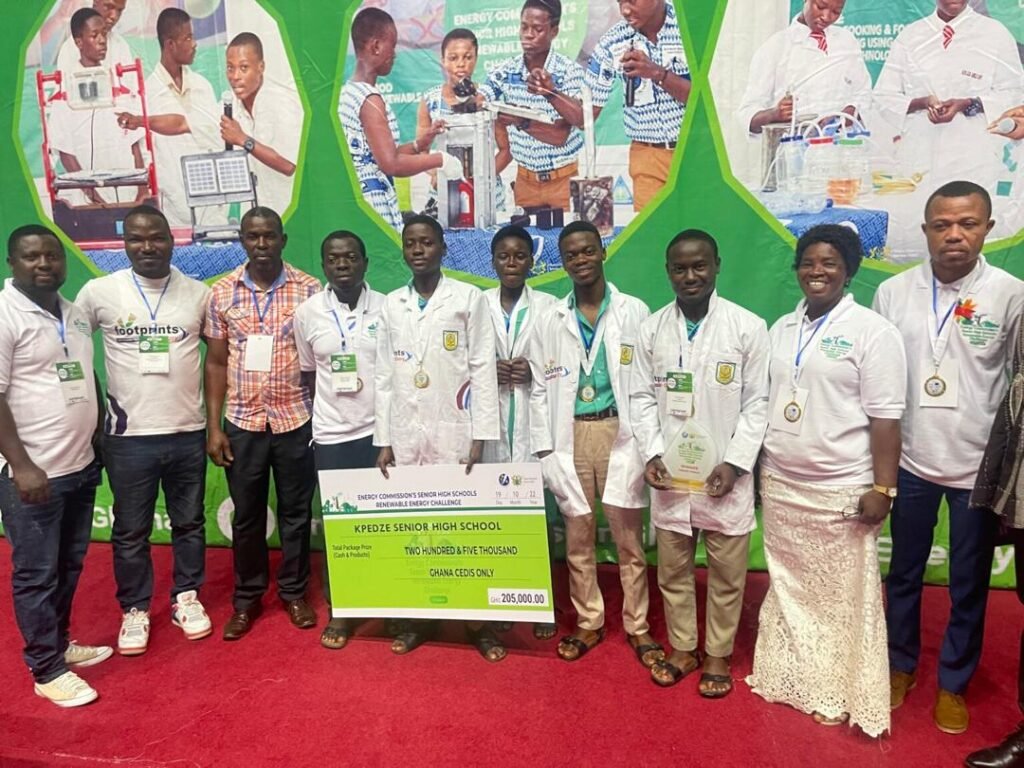
picture with winners of the Energy Commission
High School renewal energy challenge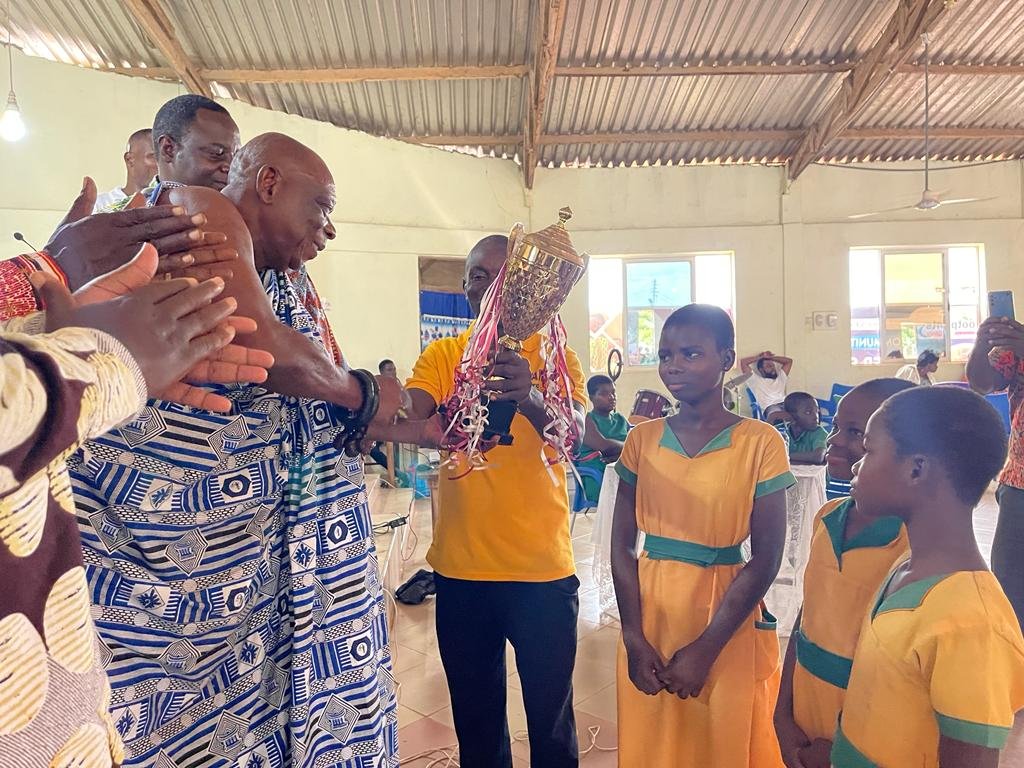
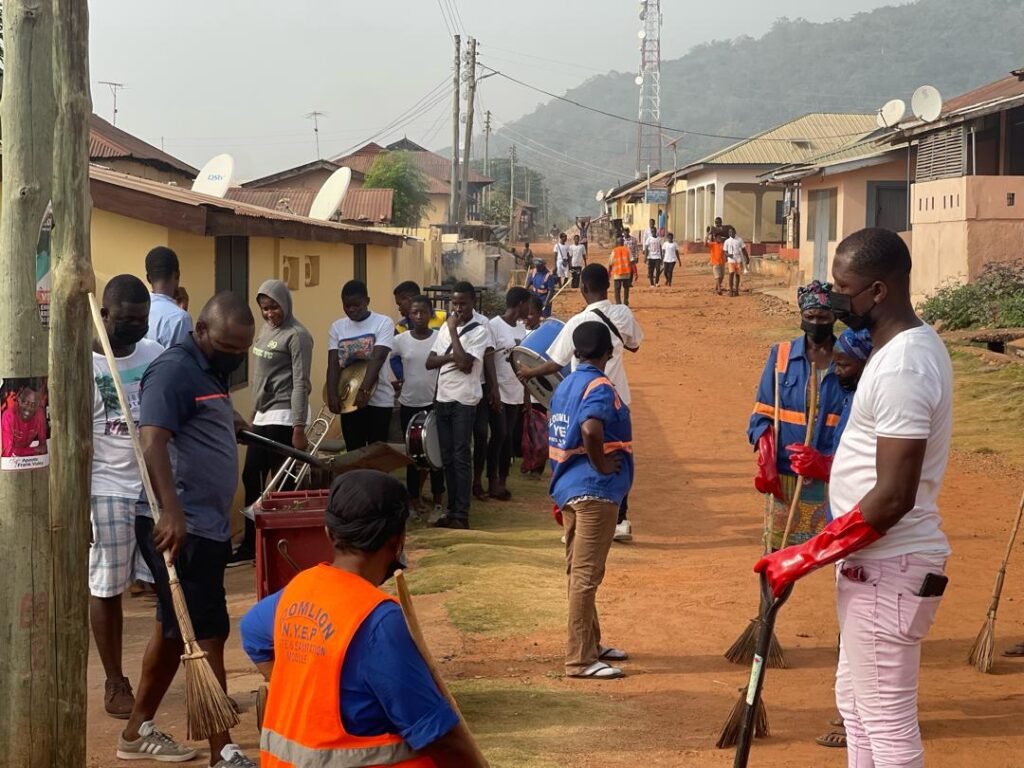
From a young age, Kafui’s life has been guided by strong values rooted in communal living.
Growing up in a close-knit family and community, he experienced firsthand the power of shared responsibility-where neighbours became second parents, and village elders doubled as life coaches.
Speaking to The Spectator in Accra on Saturday, Fiator Mordeku Ill said one childhood memory that continues to inspire him is when Togbe Gobo Dake XII, Chief of Tsito, bought him a slate for his first day in school.
Today, he serves as Fiator (father to Togbe Gobo Dake XII) to his childhood benefactor-a powerful circle of legacy and service.
“I was enstooled in my late 30s, so this journey is still quite fresh-just under two years in,” he said, by many standards that is considered quite young, especially given the weight and complexity of traditional leadership.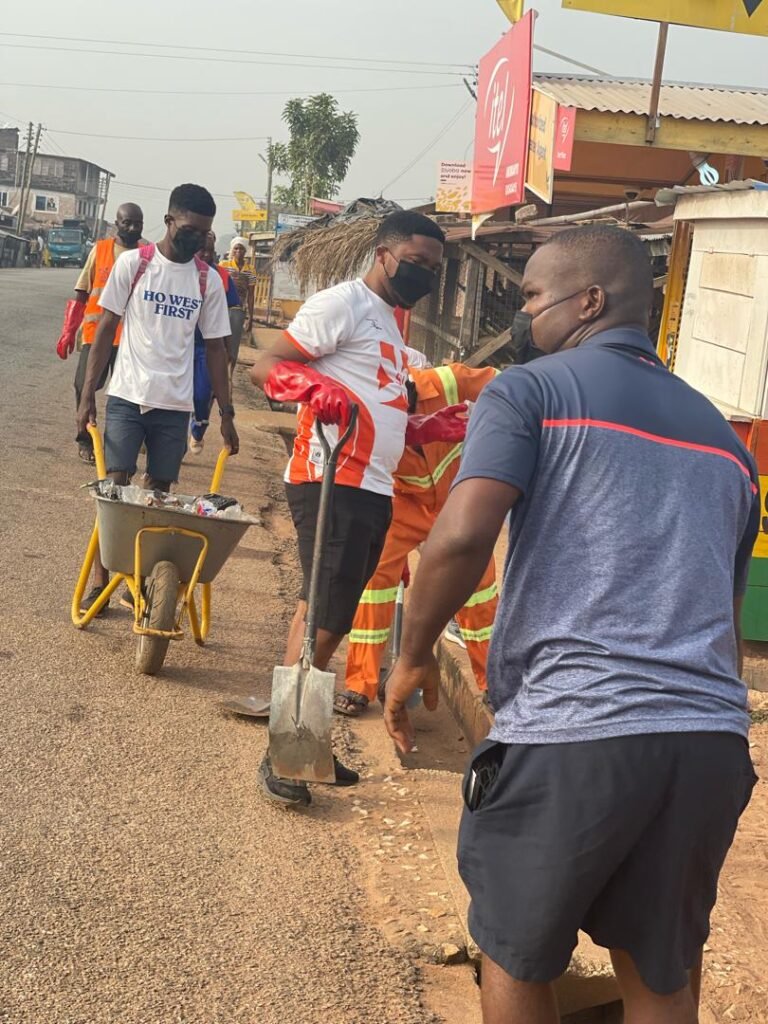
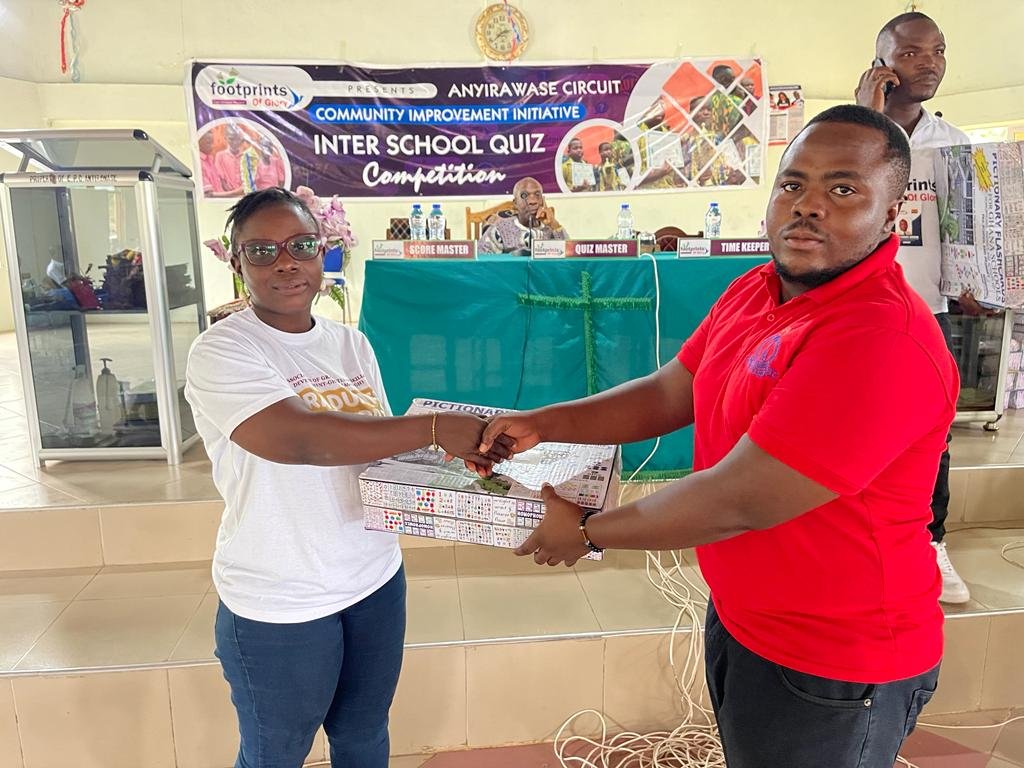

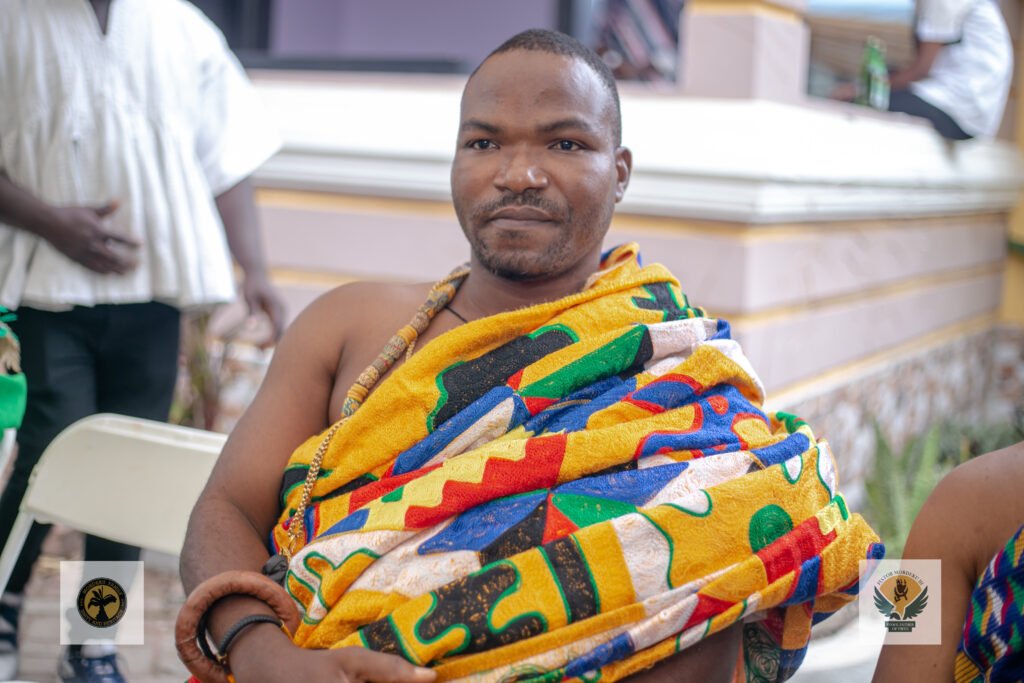
Tsito during his coronation
But I have always believed that leadership is not about how old you are; it is about preparation, mentorship, vision and most importantly, a desire to serve.
According to him, becoming a chief at a young age came with immense responsibility, saying “chieftaincy can be complex and sometimes misunderstood, but my family played a key role in preparing me.”
On the day of his enstoolment, he stood composed, not because it was easy, but because he was aware of the expectations ahead.
The reality, however, only sank in later-when the calls, community issues, and needs began pouring in. For him, leadership is not about titles but about providing proactive and adaptive leadership that reflects the needs of today’s fast-changing society.
Fiator’s reliability with the youth is a defining feature of his reign. “I am not far from the Gen Zs,” he says.
This closeness, according to him, enables him to connect with young people on a peer level, encouraging them to engage in community initiatives and understand the importance of preserving tradition. It is this connection that empowers him to blend traditional authority with modern innovation.
Outside of chieftaincy, Kafui is a passionate architect and advocate of sustainable design.
His love for designing spaces began as early as Junior Secondary School, and today, he continues to inspire with thoughtful architecture that focuses on sustainability, community needs, and the intelligent use of local materials.
To him, architecture is about how people interact with spaces, and one of his proudest contributions is his role in the design of the new Regional House of Chiefs projects across Ghana’s six new regions-a national undertaking that incorporated diverse stakeholder inputs.
His work as an architect and a chief converges in one of his most symbolic projects-a small concrete bridge he built behind his house.
It replaced a dangerous makeshift path used by locals, especially the elderly, to cross a storm drain.
“Now people walk across without fear. That one act of building a bridge, literally and symbolically, pushed me to think more deeply about the many quiet struggles people go through,” he said.
This bridge became the foundation for his greater calling – providing not just charity, but dignity and equity.
Through the Footprints of Glory Foundation, which he founded in 2020 and officially registered in 2021, Kafui has launched impactful initiatives across Tsito and the wider Awudome area.
From funding school fees and apprenticeships to constructing small community bridges and launching an online radio station (soon to become a full community station), the foundation has been a lifeline for many.
It is supported by respected individuals like Dr Yao-Foli Sekyema and Mr Michael Brefo. The foundation’s success lies in collaboration and shared purpose.
A touching example of his impact is the story of a young boy from a neighbouring village who, due to financial hardship, was working on farms despite being a top student. Fiator took him in, supported his education, and
today, the boy is university-bound-a story that encapsulates the spirit of his work.
“I don’t dwell much on legacy,” Fia
tor said. “My focus is on providing real, practical solutions that ease burdens and improve lives.”
Whether it’s mentoring architecture students, building community projects, or planning future academic pursuits.
Currently, he is studying for an MSc in Facilities Management with the aim of uplifting others through service, innovation, and collaboration.
He called on the youth to embrace discipline, humility and a deep willingness to keep learning, urging the youth not to be afraid of hard work or setbacks and that they were part of the journey.
“Find people who inspire you, ask questions, stay curious, and never forget your roots. Where you come from is your foundation, and it will keep you grounded no matter how far you go and we don’t have to wait until we are older to start serving.
He is married with three children and enjoys working out, playing lawn tennis, travelling, listening to music which he says helps him reflect, plan and recharge.
By Esinam Jemima Kuatsinu
